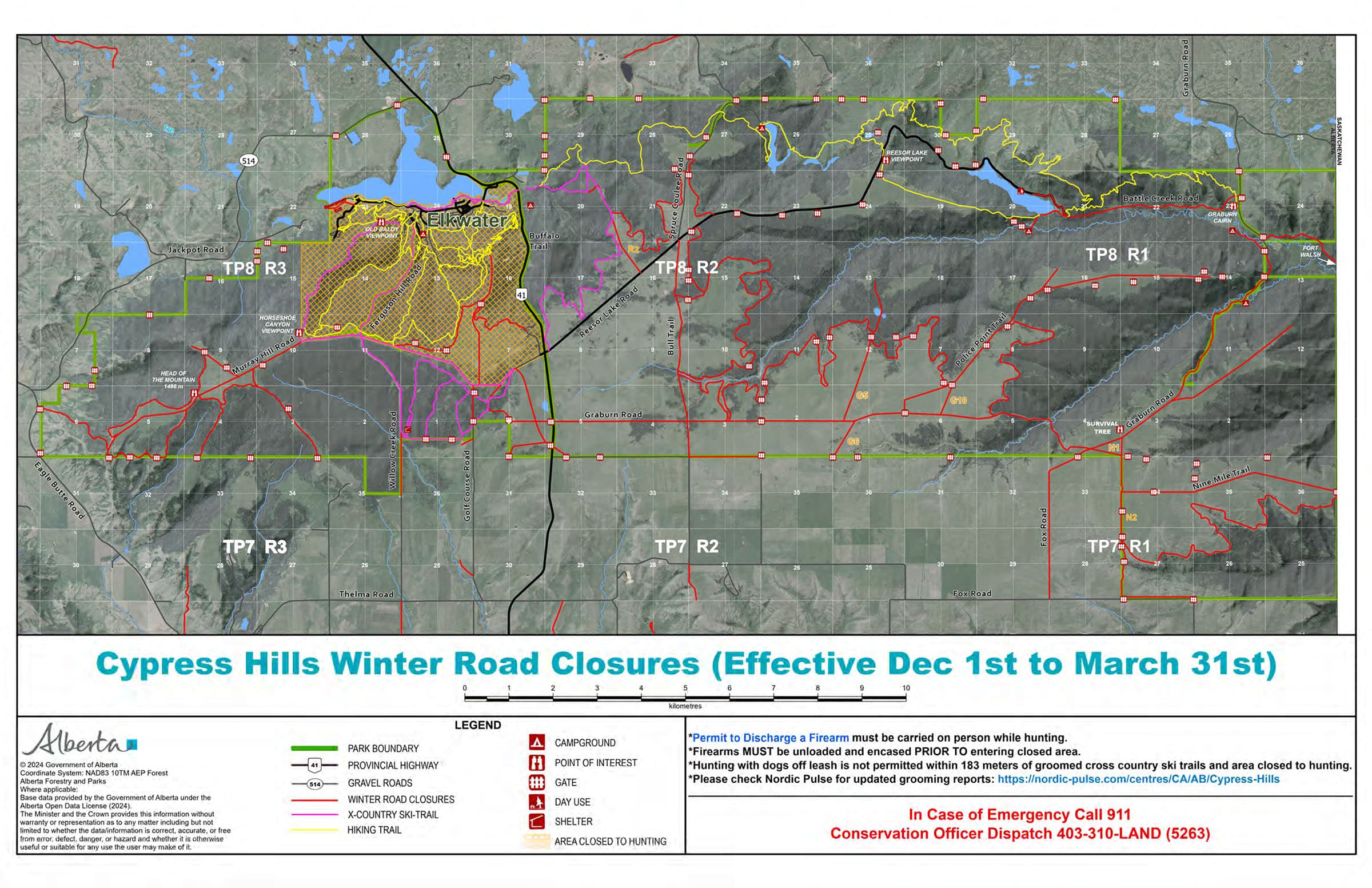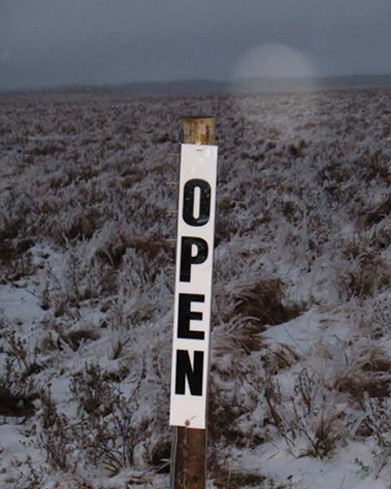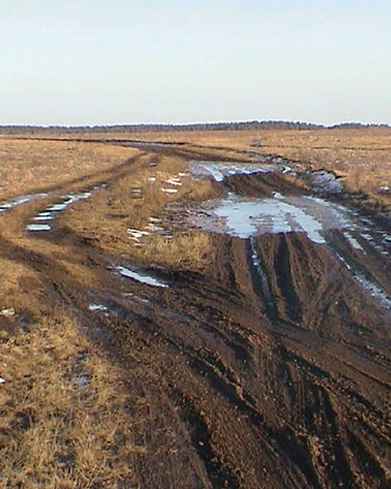There are hunting opportunities on more than 85 percent of the land base in Alberta’s parks system. Hunting is permitted in all Wildland Provincial Parks and some Provincial Parks and Provincial Recreation Areas under the Provincial Parks Act.
Alberta Parks are enjoyed by a wide range of recreational users year-round and in Provincial Parks and Provincial Recreation Areas, where hunting is allowed, Firearm Discharge Permits are required to address public safety and inform hunters of areas where discharge is prohibited because of site specific values and facilities.
Hunting is a supported activity in Alberta Parks because of its alignment with preserving natural heritage, including traditional land use, providing exceptional recreation opportunities, providing tools for wildlife management, and getting people outside and connecting with nature.
Alberta Parks are enjoyed by a wide range of recreational users year-round and in Provincial Parks and Provincial Recreation Areas, where hunting is allowed, Firearm Discharge Permits are required to address public safety and wildlife management issues as well as to protect sensitive areas and species.
Cypress Hills is designated as a Provincial Park and is managed by the Parks Division of Alberta Forestry and Parks. It is located in the southeast of Alberta near Medicine Hat and is a unique ecological entity.
The Cypress Hills are a unique landform within the Canadian prairies, extending eastwest across the southern Alberta-Saskatchewan border at heights of over 200 m above the surrounding grasslands. This environment of rolling hills contrasts dramatically with the surrounding prairies in terms of its forested slopes, grassland plateaus, flora and fauna, and moderate climate.
Hikers, cyclists, equestrian users, school children, community groups, park employees, volunteers and hunters, as well as cattle ranchers are present at all times of year at Cypress Hills Provincial Park. Please be aware of their presence and take appropriate measures to ensure you are being safe and aware at all times.

Access into the park is by vehicle or horse or foot power only. Off-highway vehicles (OHVs) cannot be used inside the park. Hunters may use motor vehicles (on resource roads that are marked as “open”), pedal bicycles, skis, and horses to travel around the park. Resource roads that may be driven on with vehicles are marked as open. Please be aware they may be closed if conditions are poor (e.g. muddy or snowed in). Motorized travel within rivers and creeks is detrimental and prohibited. Please watch for the markers as shown below:
 Open trails sign
Open trails sign Please stay on designated trails and roads. Do not drive around holes as it damages the trail and increases the size of the disturbances to the land.
Please stay on designated trails and roads. Do not drive around holes as it damages the trail and increases the size of the disturbances to the land.Be prepared for weather changes. The elevation changes in Cypress Hills Provincial Park are dramatic and can lead to precipitation, unpredictable weather, and fluctuating temperature.
Be equipped with survival gear – matches, flashlight, warm clothes, compass, extra batteries, flagging tape, food, water.
It is advised to carry flagging tape so you can mark your kill site (so you can find it again) and find your path back to your vehicle. Make sure all flagging is removed on your way out.
Be prepared to spend the night outdoors. Unpredictable precipitation and weather create a need for 4x4s in some areas and road conditions are subject to change. Weather can make travel hazardous and you might find yourself unable to travel with or without a vehicle.
Tell a friend or family member where you are going, how to contact you, what time you expect to return, and make sure they know who to contact if you are late and they are unable to contact you.
Hunters should use caution and be aware that there are many predators in the area including coyotes and cougars. Should it be necessary to leave your animal overnight, be sure to leave human scent around the carcass and drag the offal (organs) away from the carcass as these predators/scavengers will typically consume those parts first.
If found in Cypress Hills Provincial Park, please report any animal harvested with an ear tag to Conservation Officers upon discovery. Ear tags may be white with black numbers, or orange stating “DO NOT EAT” followed by a phone number. The “do not eat” tag is placed on animals that have been tranquilized; hunters must tag their animal and can still expect to salvage their harvest, but depending on when the animal was tranquilized, the hunter will find out whether the meat is safe to consume (or whether a replacement tag may be issued).
Contact the office at 310-LAND (5263) or 403–893–3833 for further questions or concerns.
Both Parks are Named Cypress Hills Provincial Park. Cypress Hill Provincial Park borders the province of Saskatchewan and the Alberta Parks Firearm Discharge Permit is not applicable in Saskatchewan. Please contact Saskatchewan Parks for further information on hunting on land within that province.